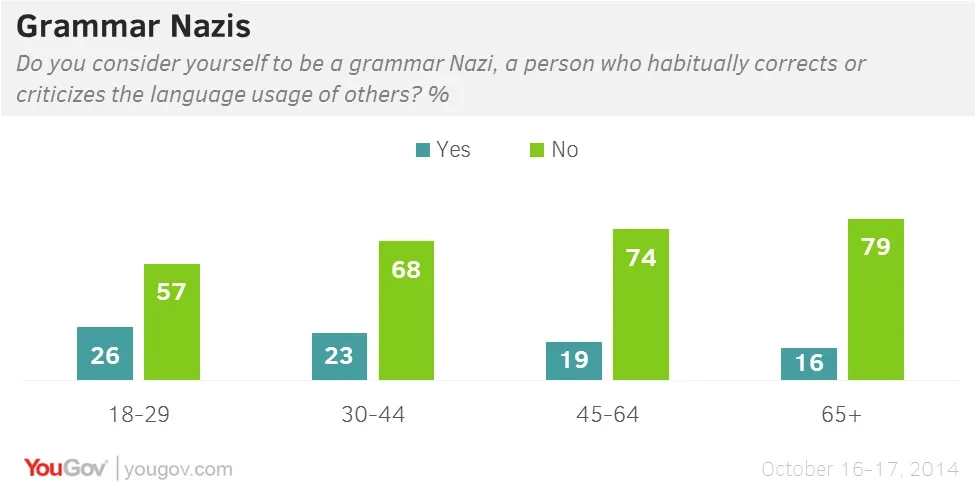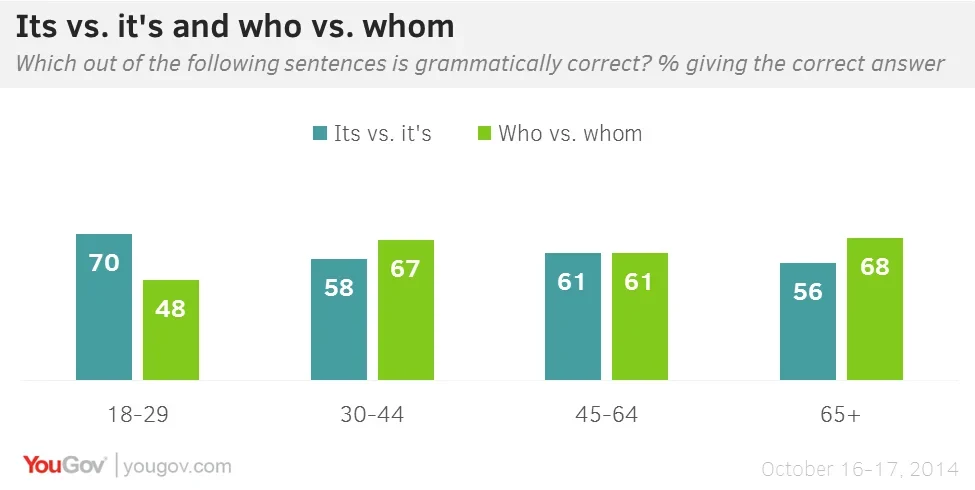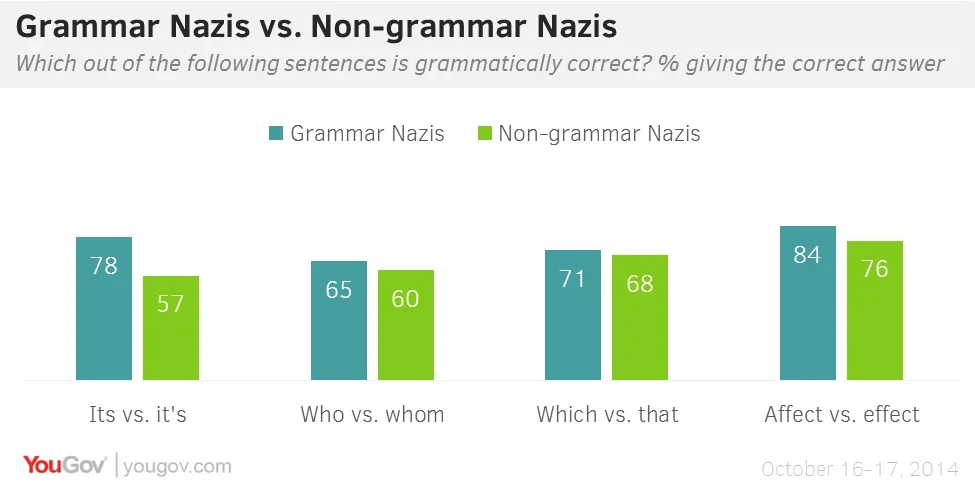Most Americans don't habitually correct people's grammar, however, and most are able to tell ‘its' from 'it's'
As the internet has become nearly universal, we are sharing more and more of our lives and thoughts in text. With this come many more opportunities to make expose a poor grasp of the rules of grammar and to face the wrath of people who call others out with depressing regularity for minor (and not-so-minor) transgressions against the official rules of the English language.
Research conducted by YouGov in October shows that, when asked, 21% of Americans consider themselves to be what is colloquially known as a 'grammar Nazi', that is someone who habitually corrects or criticizes the language usage of others. Younger Americans, especially under-30s (26%) are more likely than older American to admit to being grammar Nazis. Only 16% of over-65s say that they habitually correct and criticize the language usage of others. 70% deny being a grammar Nazi, while 9% are on the fence.

This finding is appropriate, as younger Americans were often better than older Americans at accurately identifying the correct grammatical form of particular sentences. When asked about the correct use of 'it's' and 'its', 61% of Americans rightly identified the sentence 'my oak tree loses its leaves in autumn' as being correct, while 31% said that 'my oak tree loses it's leaves in autumn' was correct, wrongly using the contraction of 'it is'. 70% of under-30s identified the correct sentence, compared to 56% of over-65s.
One question where older Americans were more likely to be correct was on the correct usage of 'who' and 'whom'. 68% of people over the age of 65 knew that 'I consulted an attorney whom I met in New York' is the correct sentence, compared to only 48% of under-30s. 40% of under-30s said that 'I consulted an attorney who I met in New York' is the correct sentence, while less than a third of anyone 30 or older said the same.

Apart from 'its' vs. 'it's', self-professed grammar Nazis were not significantly more likely than the general public to answer correctly. 78% of grammar Nazis got the 'its' vs. 'it's' question right, compared to 57% of non-grammar Nazis. For 'who' vs. 'whom', 65% of grammar Nazis were right along with 60% of non-grammar Nazis.

Overall, Americans were no better or worse at answering correctly than the British public, who were asked the same questions.
Full poll results can be found here.









